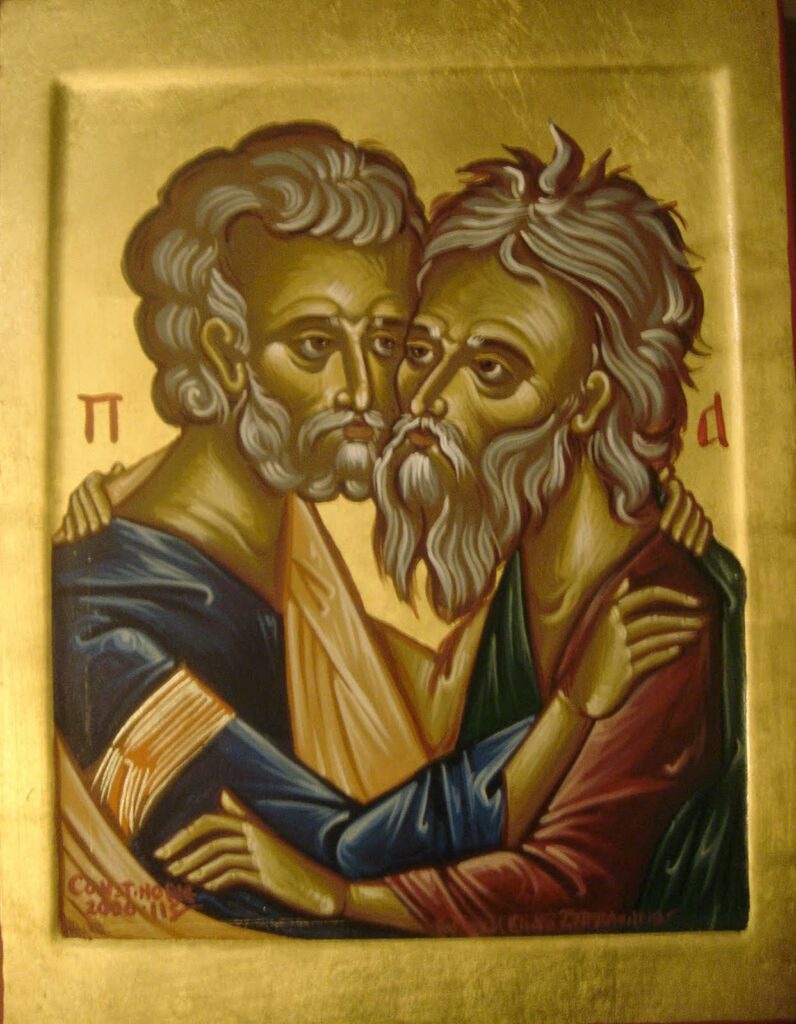Who is The Apostle Saint Mark the Evangelist

The Life and Gospel of Saint Mark – Profile, and Biography
Who is The Apostle Saint Mark the Evangelist. Saint Mark the Evangelist, also known as John Mark, is traditionally credited with writing the Gospel of Mark, one of the four canonical Gospels in the New Testament. His life and contributions to early Christianity are significant, although much of what we know comes from a combination of historical tradition, biblical accounts, and early Christian writings.
Saint Mark’s life and Gospel continue to be celebrated in Christian liturgy and tradition, and his legacy is especially significant in the Coptic Orthodox Church and the city of Venice, where he is the patron saint.
Who is The Apostle Saint Mark the Evangelist
Early Life:
Saint Mark is believed to have been born in Cyrene (modern-day Libya), though some traditions suggest that he was born in Jerusalem. His Jewish name was John, and “Mark” was his Roman name.
He was likely a cousin of Barnabas, an early Christian missionary, which might have connected him to the early Christian community.
Role in the Early Church:
Mark is first mentioned in the Acts of the Apostles (Acts 12:12), where his mother’s house in Jerusalem is noted as a meeting place for early Christians. This suggests that his family was involved in the early Christian movement.
Mark accompanied Paul and Barnabas on their first missionary journey (Acts 13:5), but he left them early in the trip, returning to Jerusalem (Acts 13:13). This departure led to a disagreement between Paul and Barnabas when planning their next journey, with Barnabas choosing to take Mark, while Paul chose Silas (Acts 15:36-40).

Association with Peter:
According to early Christian tradition, Mark became closely associated with the Apostle Peter. In 1 Peter 5:13, Peter refers to Mark as “my son,” indicating a close relationship. It is widely believed that Mark’s Gospel is based on Peter’s teachings and eyewitness accounts of Jesus’ life.
Authorship of the Gospel of Mark:
The Gospel of Mark is the shortest and possibly the earliest of the four Gospels, often dated to around 60-70 AD. It is characterized by its fast-paced narrative and emphasis on the actions and teachings of Jesus.
Mark’s Gospel focuses on Jesus as the suffering servant and Son of God, highlighting his authority, his miracles, and his passion, death, and resurrection. Mark’s gospel is considered one of the Synoptic Gospels (along with Matthew and Luke), meaning that it shares much content with these other Gospels, suggesting a common source or inspiration.
Later Life and Death:
According to tradition, Mark later went to Alexandria in Egypt, where he established the Christian Church. He is considered the first bishop of Alexandria, and the Coptic Orthodox Church regards him as its founder and patron saint.
Saint Mark is believed to have been martyred in Alexandria around 68 AD. Tradition holds that he was dragged through the streets until he died. His relics were later moved to Venice, Italy, where the famous St. Mark’s Basilica was built in his honor.
The Gospel of Saint Mark
Structure and Themes:
The Gospel of Mark is structured around the ministry of Jesus, particularly his activities in Galilee, his journey to Jerusalem, and the events of Holy Week, leading to his crucifixion and resurrection.
Key themes in Mark’s Gospel include the Messianic Secret (the idea that Jesus’ identity as the Messiah was not fully revealed until after his resurrection), the humanity and suffering of Jesus, and the call to discipleship.

Importance:
The Gospel of Mark is foundational for understanding the life and ministry of Jesus. It is believed to have served as a source for the Gospels of Matthew and Luke, making it a critical text in the New Testament. Mark’s Gospel is known for its vivid storytelling and direct style, which emphasizes the urgency of Jesus’ message and the need for a response from his followers.
Legacy:
Saint Mark is honored as one of the four Evangelists and is often depicted in Christian art with a winged lion, symbolizing his role as a Gospel writer. His contributions to the early Church, both through his Gospel and his missionary work, have had a lasting impact on Christianity.
You must be logged in to post a comment.